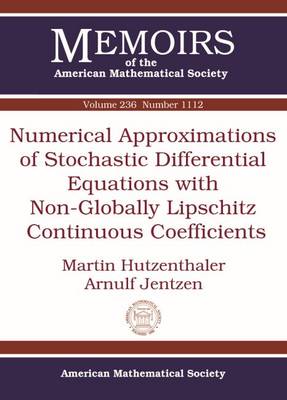Memoirs of the American Mathematical Society
1 total work
Many stochastic differential equations (SDEs) in the literature have a superlinearly growing nonlinearity in their drift or diffusion coefficient. Unfortunately, moments of the computationally efficient Euler-Maruyama approximation method diverge for these SDEs in finite time.
This article develops a general theory based on rare events for studying integrability properties such as moment bounds for discrete-time stochastic processes. Using this approach, the authors establish moment bounds for fully and partially drift-implicit Euler methods and for a class of new explicit approximation methods which require only a few more arithmetical operations than the Euler-Maruyama method. These moment bounds are then used to prove strong convergence of the proposed schemes. Finally, the authors illustrate their results for several SDEs from finance, physics, biology and chemistry.
This article develops a general theory based on rare events for studying integrability properties such as moment bounds for discrete-time stochastic processes. Using this approach, the authors establish moment bounds for fully and partially drift-implicit Euler methods and for a class of new explicit approximation methods which require only a few more arithmetical operations than the Euler-Maruyama method. These moment bounds are then used to prove strong convergence of the proposed schemes. Finally, the authors illustrate their results for several SDEs from finance, physics, biology and chemistry.
